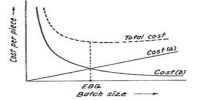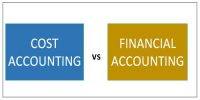A discretionary fixed cost has a short future planning horizon-under a year. These types of costs arise from annual decisions of Management to spend in specific fixed cost areas, such as marketing and research. The following can be considered discretionary fixed costs:
- Advertising campaigns
- Employee training
- Investor relations
- Public relations
- Research and development activities for specific products.
Discretionary fixed costs are referred to as period particular costs that can be eliminated or reduced without having a direct impact on profitability.
A committed fixed cost has a long future planning horizon-more than on year. These types of costs related to a company’s investment in assets such as facilities and equipment. Once such costs have been incurred, the company is required to make future payments. Committed fixed costs are costs that a business has already made or obliged to make in the future; thus, cannot be recovered. For example, if a company buys a machine for $400,000 and also issues a purchase order to pay for a continuance contract for $20,000 in each of the next two years, all $460,000 is a committed cost, because the company has already bought the machine, and has a legal obligation to pay for the maintenance.
















